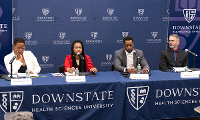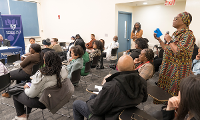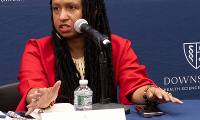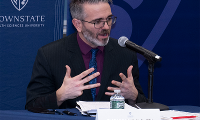The Reality of Racism as a Public Health Crisis
By Office of the President | Mar 5, 2024
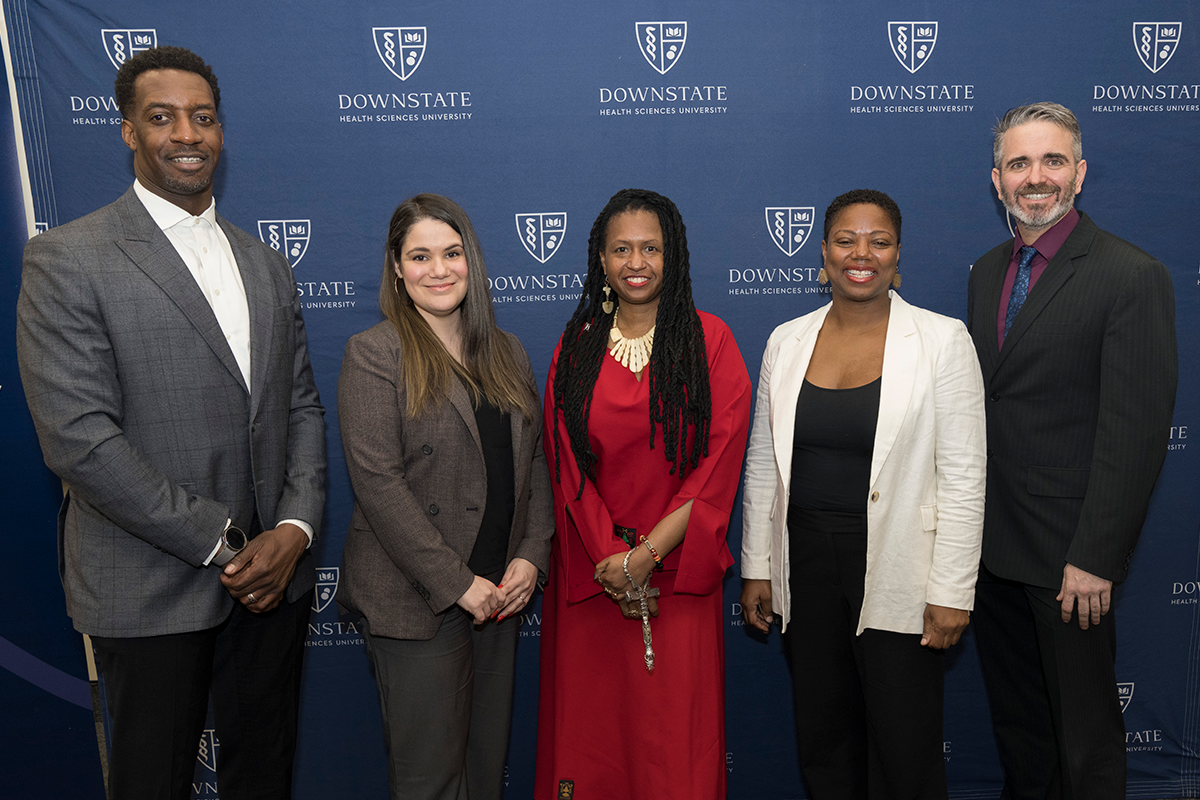 Racism is acknowledged as a widespread societal problem, impacting individuals and
communities across multiple dimensions of life. In response, there is increasing recognition
of racism as a public health crisis and a significant determinant of health disparities,
prompting many, including the Centers for Disease Control and Prevention, to declare
it a public health crisis. This acknowledgment has spurred discussions and initiatives focused on mitigating
its effects, particularly within marginalized and, most often, communities of color.
Racism is acknowledged as a widespread societal problem, impacting individuals and
communities across multiple dimensions of life. In response, there is increasing recognition
of racism as a public health crisis and a significant determinant of health disparities,
prompting many, including the Centers for Disease Control and Prevention, to declare
it a public health crisis. This acknowledgment has spurred discussions and initiatives focused on mitigating
its effects, particularly within marginalized and, most often, communities of color.
Over 500 participants attended the recent Black History Month panel discussion, “Racism as a Public Health Crisis,” either in person or via livestream. The discussion centered on the intersection of racism and public health, examining insights, and implications for addressing this crucial issue.
Panelists described how systemic racism amplifies health disparities within minority communities, sharing distinct viewpoints and firsthand experiences about the impact of racism on health outcomes. They discussed the lasting impact of historical injustices like segregation and discriminatory policies on present-day health outcomes. They also reviewed some of the structural barriers, such as limited healthcare access, housing, and education—significant factors contributing to the disproportionate prevalence of chronic illnesses, mental health issues, and premature mortality in these communities.
The panel emphasized the need for concerted action to address the root causes and consequences of racism. By adopting an intersectional approach and acknowledging the enduring legacy of systemic racism, efforts can be directed toward building a more equitable and inclusive society. Community empowerment and advocacy emerged as crucial strategies in fighting racism in healthcare, underscoring the importance of amplifying marginalized voices and mobilizing collective action to drive systemic change.
We were pleased to welcome panelists Azure Thompson, DrPH, MPH, Assistant Professor, Department of Community Health Sciences; K. Torian Easterling, M.D., MPH, Senior Vice President, Population and Community Health/ Chief Strategic and Innovation Officer, One Brooklyn Health; Anika Daniels-Osaze, Ed.D., MPH, Associate Dean for Education and Clinical Associate Professor, Health Policy and Management; and Thomas Mackie, Ph.D., MPH, Chair and Associate Professor, Health Policy and Management.
Student Affairs assistant dean and Community Health Sciences assistant professor of Marlene Camacho-Rivera, ScD, MS, MPH, served as moderator, skillfully guiding a conversation that spurred deeper inflection and insight. Executive Vice President Keydron K. Guinn, Ph.D., MA, MBA, and School of Public Health Dean Kitaw Demissie, M.D., Ph.D., delivered greetings and opening remarks.
Tags: Public Health
